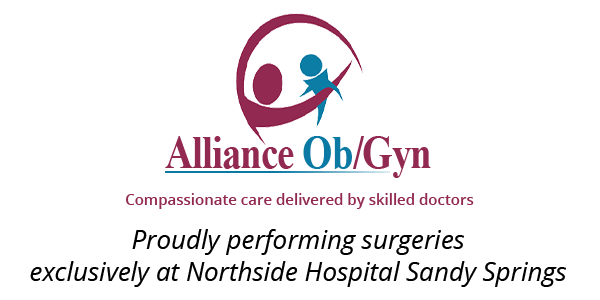
Heart Health Awareness Month: How Your OB/GYN Supports Cardiovascular Wellness
February is Heart Health Awareness Month, a time to raise awareness about heart disease—the leading cause of death in women. While many think of cardiologists as the primary doctors for heart health, your OB/GYN plays a critical role in identifying and managing cardiovascular risks at every stage of life. At Alliance OB/GYN in Alpharetta, GA, we take a comprehensive approach to women’s health, helping our patients prevent, monitor, and manage conditions that impact both reproductive and heart health.
The Connection Between Women’s Health and Heart Health
Many women’s health concerns are linked to cardiovascular health, including:
- Hormonal Changes – Estrogen helps protect the heart, but menopause increases cardiovascular risks due to declining estrogen levels.
- Pregnancy-Related Conditions – High blood pressure, gestational diabetes, and preeclampsia can raise the risk of heart disease later in life.
- Polycystic Ovary Syndrome (PCOS) – PCOS is associated with insulin resistance, high cholesterol, and an increased risk of cardiovascular disease.
- Metabolic Changes – Weight gain, hormonal imbalances, and sedentary lifestyles can contribute to high blood pressure and heart disease.
How Your OB/GYN Supports Heart Health
Your OB/GYN is often the first doctor you see for routine care, making them an essential partner in early detection and prevention of heart disease.
- Routine Screenings for Blood Pressure and Cholesterol
- High blood pressure can go unnoticed but significantly increases heart disease risk. We monitor your blood pressure at every visit to detect early signs of hypertension.
- If needed, we can recommend cholesterol and blood sugar testing to assess cardiovascular risk.
- Managing Pregnancy-Related Heart Risks
- Preeclampsia, gestational hypertension, and gestational diabetes increase the chances of developing cardiovascular disease later in life.
- We provide postpartum follow-up care to monitor and manage any lingering health concerns.
- Menopause and Heart Health
- Estrogen decline during menopause can lead to increased cholesterol, blood pressure, and body fat—all risk factors for heart disease.
- Hormone Replacement Therapy (HRT) can help manage menopausal symptoms while offering potential benefits for heart health when used appropriately.
- Supporting a Heart-Healthy Lifestyle
Your OB/GYN can help you develop heart-friendly habits by offering guidance on:
- Nutrition – A balanced diet with fiber, healthy fats, and lean proteins supports heart health.
- Exercise – Regular movement helps regulate weight, hormone balance, and circulation.
- Stress Management – Chronic stress can impact heart health, and strategies like yoga, deep breathing, and mindfulness can help.
Prioritize Your Heart Health with Expert Care
Your heart health is closely linked to your overall well-being, and Alliance OB/GYN in Alpharetta, GA, is here to support you. Whether you’re pregnant, navigating menopause, or focused on preventive care, our team is committed to your long-term health.
Schedule an appointment today to discuss your heart health, hormone balance, and overall wellness.



